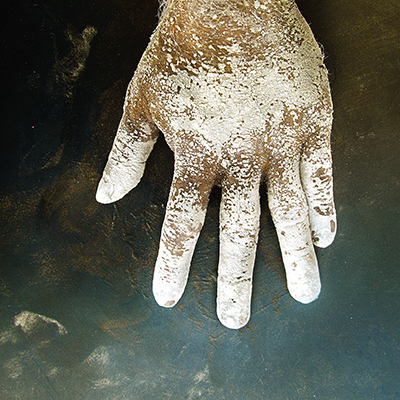Near the beginning of Gesualdo: Death For Five Voices, a 1995 television documentary by Werner Herzog about the late-Renaissance prince and composer Carlo Gesualdo, the camera follows a southern Italian local as he traipses through the remains of Gesualdo’s castle in the province of Campania while playing a tune on the bagpipes. Herzog’s crew asks the man what he’s up to. "I come here once a week to play music into these holes and cracks," he says, gesturing to the peeling and crumbling surfaces of the building. "Because there’s an evil spirit haunting this place, and I have to keep him from escaping." It’s Gesualdo’s spirit, of course, which looms large in rural Campania, transfixing and possessing the locals several centuries after his death. But why? More so than his music – ignored in its time but revered later on for its formal innovations – it’s Gesualdo’s story, namely the brutal murder of his wife and her lover, that captures the attention of present-day people throughout Italy and beyond.
Though clearly interested in Gesualdo’s macabre narrative, Herzog also makes great effort to highlight the erstwhile prince’s prowess as a composer. Gesualdo’s music suggests his fragile psyche, Herzog notes: unsettling, expressionistic, and rhythmically-diverse. Likewise culling inspiration from both Gesualdo’s thirst for blood and forward-thinking music, Night Of Your Ascension, the fourth album by Chicago collective Wrekmeister Harmonies, bases its monumental title track on one of Gesualdo’s madrigals. Peppered with overlapping moments of angelic beauty and bone-shaking doom, the piece updates the late composer’s fragile, liminal compositions with an appropriately heavy, electric palette. In other words, where that Italian man used music to "keep [Gesualdo’s spirit] from escaping," on Night Of Your Ascension Wrekmeister Harmonies play to set the bastard free.
That said, Night Of Your Ascension begins with roughly fifteen minutes of flowing, sedated cycles of sound—alternatingly calming and unnerving—constructed under bandleader J.R. Robinson’s supervision by Marissa Nadler, whose floating voice repeats the foreboding ‘You would never say goodbye’; Cooper Crain (Bitchin Bajas) and Jaime Fennelly (Mind Over Mirrors), whose synthesised arpeggios lend the composition a particularly unsettling undulation; and a cast of thirty other musicians representing various stylistic disciplines. In the intro, Robinson & Co. offer something appropriately suited for a church that, like much Renaissance music, is relatively easy listening but, due to cryptic lyrics and subtle-but-constant textural changes, refuses easy classification.
But after its halfway point Night Of Your Ascension shifts creepily from post-madrigal avant-garde music to the thunderous doom metal that Wrekmeister Harmonies approaches so well. Building carefully on the back of the Bonham-on-codeine beat, the piece elevates first into a thick fog of stoner doom and then into a hell-raising shriek-fest that continues for several minutes. Each stage of the composition, like each voice in Gesualdo’s interweaving madrigals, flows seamlessly from its predecessor, such that the transition from the Nadler-led ambience of the beginning to the abrasive apex feels natural, like the rush of blood through – and perhaps out of – the body. Until it cuts off, that is, as if someone abruptly locked Gesualdo’s spirit back in the walls of his crumbling castle.
Next comes the seventeen-minute ‘Run Priest Run,’ inspired by John Geoghan, a priest convicted for pedophilia and subsequently murdered in prison. (Like Gesualdo, Geoghan is a gruesome and despicable figure whose fate complicates his legacy.) Robinson opens up the mix, beginning with a long, spacious introduction full of industrial clunks and scrapes, fabricating the decidedly corporeal sonic landscape through which the titular demonised priest might ‘run.’ Like ‘Night of Your Ascension,’ ‘Run Priest Run’ uses its long running time to ebb and flow, and to reach a screaming peak – led by The Body’s Chip King – in its second half. Unlike the first track, however, ‘Run Priest Run’ settles down in its final moments, cycling the listener back to where the album began: a calm, pseudo-religious atmosphere, detached, celestial. It makes the album work as a forty-nine-minute unit – one that explores, through a cascading matrix of sounds and musical forms, the nuances of the demons that course side-by-side through history, religion, and music.


